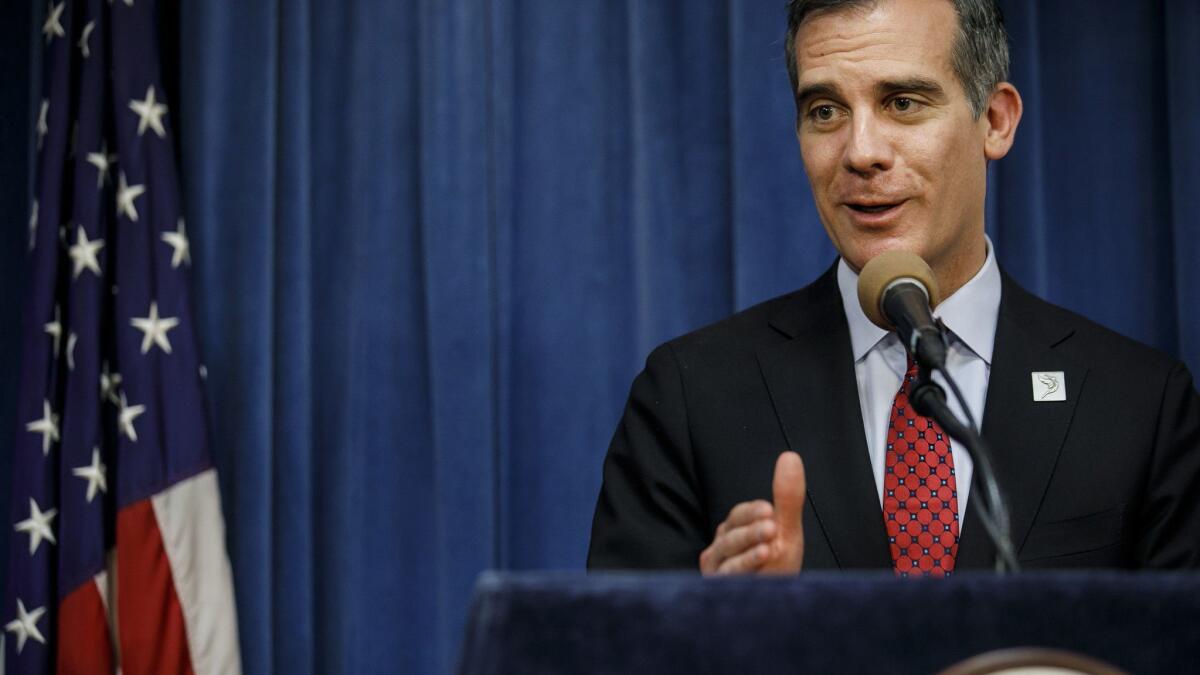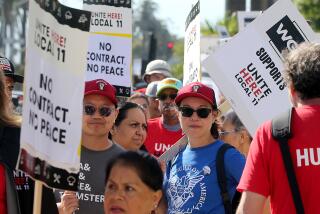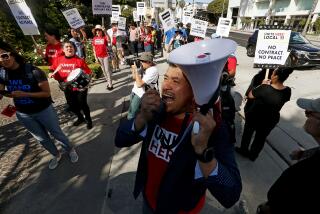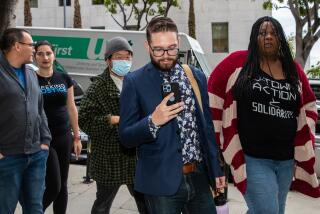Editorial: Shouting down Mayor Garcetti isn’t ‘speaking truth to power’

- Share via
On Monday Mayor Garcetti was prevented from delivering a speech at USC because of constant interruptions from protesters angry about the city’s approach to homelessness, local police shootings and other issues. The hecklers were persistent and creative, at one point singing a parody of “Santa Claus Is Coming to Town,” but with the words, “You better watch out, you better not cry, Eric Garcetti is telling us lies.”
Before he gave up trying to deliver his remarks, the mayor asked one of the protesters: “Do you respect 1st Amendment rights?” The answer, it seems, is: “For me but not for thee.”
Questioning, even heckling, public officials is obviously an exercise of free speech. But the protesters didn’t just challenge Garcetti; they made it impossible for him to deliver the address he had prepared as part of an event celebrating the 70th anniversary of the Universal Declaration of Human Rights. That not only prevented the mayor from speaking but denied members of the audience the opportunity to hear him.
Enter the Fray: First takes on the news of the minute from L.A. Times Opinion »
The next day, a meeting of the L.A. Unified school board was cut short after 50 protesters sympathetic to the teachers union started chanting three hours into the session. Here the effect wasn’t to silence a speaker but to make it impossible for a public body to continue transacting business. (The chanting started after protesters had testified in an orderly way.)
We’re sure the protesters at both events thought they were speaking truth to power, and they’d be correct about the “power” part. Both the mayor and the school board exercise enormous influence. And one of the central purposes of the 1st Amendment is to allow the governed to criticize those who govern them, and not necessarily politely.
As the Supreme Court said in a landmark libel case, this country has made a “profound national commitment to the principle that debate on public issues should be uninhibited, robust, and wide-open, and that it may well include vehement, caustic, and sometimes unpleasantly sharp attacks on government and public officials.” That’s why public officials should err on the side of patience when citizens challenge them in a public setting.
But protesters can overplay their hands. These days, tolerance of other people’s views seems low, and there’s an unhealthy willingness to silence one’s opponents rather than engage them, debate them and out-argue them. That’s a shame.
Protesters who shout down a speaker — or shut down a public meeting — aren’t just expressing their own views; they’re making it impossible for others to share theirs. That sort of power play may or may not achieve a protest’s objectives, but it’s a perversion of the concept of free speech.
Follow the Opinion section on Twitter @latimesopinion and Facebook
More to Read
A cure for the common opinion
Get thought-provoking perspectives with our weekly newsletter.
You may occasionally receive promotional content from the Los Angeles Times.









